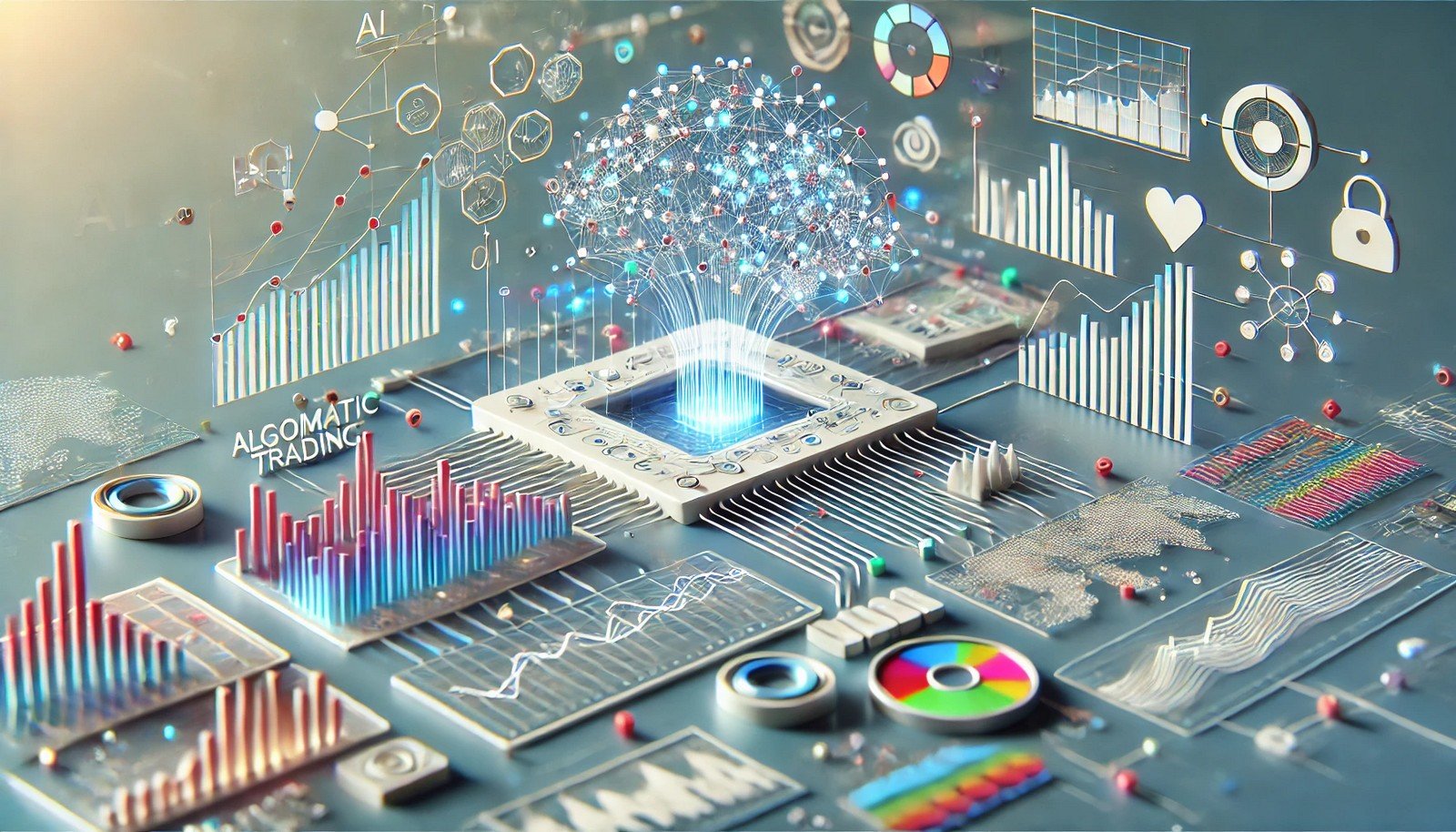AI Algorithmic Trading: A Complete Guide

Quick Navigation:
- AI Algorithmic Trading Definition
- AI Algorithmic Trading Explained Easy
- AI Algorithmic Trading Origin
- AI Algorithmic Trading Etymology
- AI Algorithmic Trading Usage Trends
- AI Algorithmic Trading Usage
- AI Algorithmic Trading Examples in Context
- AI Algorithmic Trading FAQ
- AI Algorithmic Trading Related Words
AI Algorithmic Trading Definition
AI Algorithmic Trading refers to the use of artificial intelligence (AI) in automating trading strategies in financial markets. Using machine learning and complex algorithms, AI systems analyze vast amounts of data to make trading decisions without human intervention. This approach aims to improve trading efficiency, speed, and accuracy by identifying patterns and trends in real-time. Key algorithms include neural networks, decision trees, and deep learning models, which continuously optimize to adapt to market changes.
AI Algorithmic Trading Explained Easy
Imagine you’re at a market and need help to buy things at the right price. AI in algorithmic trading is like a smart helper that constantly watches the prices, quickly finding the best deals for you without waiting for your instructions. It makes trading decisions on its own to help you buy or sell at the right time.
AI Algorithmic Trading Origin
AI Algorithmic Trading emerged from advancements in both finance and computer science. While basic algorithmic trading started in the 1970s, AI-driven trading gained traction with the growth of machine learning and computational power in the early 21st century, allowing for more complex data analysis and decision-making.
AI Algorithmic Trading Etymology
The term "algorithmic trading" originates from the systematic use of predefined rules or algorithms to execute trades. With the integration of AI, it has evolved to include self-learning and adaptive capabilities.
AI Algorithmic Trading Usage Trends
In recent years, AI Algorithmic Trading has surged in popularity. Financial institutions and hedge funds widely use it to optimize trading strategies and manage assets. With AI, trading algorithms can adapt to rapidly changing market conditions, making them highly valuable in volatile markets. This trend is driven by advancements in data processing, access to massive datasets, and a competitive financial landscape where speed and precision are paramount.
AI Algorithmic Trading Usage
- Formal/Technical Tagging:
- Financial Technology
- Automated Trading
- Machine Learning in Finance
- Quantitative Analysis
- Typical Collocations:
- "AI-driven trading strategies"
- "algorithmic trading models"
- "high-frequency trading algorithms"
- "automated market analysis"
AI Algorithmic Trading Examples in Context
- AI algorithms in trading platforms execute trades based on real-time analysis, minimizing delays.
- Hedge funds use AI algorithmic trading to maximize returns by identifying market trends and anomalies.
- AI-powered trading bots assist in cryptocurrency markets by reacting instantly to price changes.
AI Algorithmic Trading FAQ
- What is AI Algorithmic Trading?
AI Algorithmic Trading is an automated trading method that uses artificial intelligence to execute trades based on data-driven analysis. - How does AI Algorithmic Trading differ from traditional trading?
Unlike traditional trading, which often relies on human judgment, AI trading relies on algorithms to make quick, unbiased decisions. - What are the benefits of AI Algorithmic Trading?
AI improves trading speed, accuracy, and efficiency by processing data faster than humans. - What risks are associated with AI Algorithmic Trading?
Potential risks include market volatility and over-reliance on data, which may not always predict future trends. - Can individuals use AI for trading?
Yes, AI-driven trading platforms are available for both institutions and individual traders. - How does machine learning contribute to AI Algorithmic Trading?
Machine learning enables trading algorithms to adapt and learn from new data, improving their accuracy over time. - What role do data scientists play in AI Algorithmic Trading?
Data scientists design and optimize algorithms to ensure they make reliable trading decisions. - What financial markets use AI Algorithmic Trading?
AI algorithmic trading is popular in stock, forex, commodities, and cryptocurrency markets. - Are there ethical concerns with AI Algorithmic Trading?
Concerns include market manipulation and the potential for high-frequency trading to impact market stability. - How does AI affect high-frequency trading?
AI can enhance high-frequency trading by executing trades in microseconds, responding to even minor market changes.
AI Algorithmic Trading Related Words
- Categories/Topics:
- Financial Technology
- Algorithmic Trading
- Quantitative Finance
- Machine Learning in Finance
Did you know?
AI Algorithmic Trading has grown so popular that it now accounts for a large percentage of trading volumes on major stock exchanges, with high-frequency trading algorithms responsible for a significant portion of daily trades. This level of automation has reshaped market dynamics, making trading faster and more data-driven.
PicDictionary.com is an online dictionary in pictures. If you have questions or suggestions, please reach out to us on WhatsApp or Twitter.Authors | Arjun Vishnu | @ArjunAndVishnu

I am Vishnu. I like AI, Linux, Single Board Computers, and Cloud Computing. I create the web & video content, and I also write for popular websites.
My younger brother, Arjun handles image & video editing. Together, we run a YouTube Channel that's focused on reviewing gadgets and explaining technology.



Comments powered by CComment